The Digital Platform Inquiry – in a nutshell
The ACCC Digital Platform Inquiry’s Preliminary Report covers a lot of ground. In the interests of brevity (and sanity) DGA has prepared a summary of key points for your reference.
Issues for consideration
The ACCC has indicated that it is interested in a range of issues.
- assessing the market power of digital platforms
- the implications of digital platforms for media content creators, advertisers and consumers
- longer term trends in the media and advertising services markets
- the effectiveness of existing regulation and proposals for change
Areas of Concern
In broad terms, the Preliminary Report touched on several areas of potential concern, including:
- discrimination
- defamation
- privacy
- copyright
- targeted advertising
- consent
- notice & transparency
- unfair contracts
- unequal bargaining power
- advertising algorithms
- consumer awareness & understanding
- fake news, fake endorsement, fake ads
Preliminary Recommendations
The Preliminary Report makes 11 recommendations, grouped into 5 areas. Both the recommendations and the topic areas are listed below.
- Measures to address Google and Facebook’s market power
- Preliminary Recommendation 1—merger law
- Preliminary Recommendation 2—prior notice of acquisitions
- Preliminary Recommendation 3—choice of browser and search engine
Measures to monitor digital platforms’ activities and the potential consequences of those activities for news media organisations and advertisers
- Preliminary Recommendation 4—advertising and related business oversight
- Preliminary Recommendation 5—news and digital platform regulatory oversight
Measures to address regulatory imbalance
- Preliminary Recommendation 6—review of media regulatory frameworks
Measure to assist a more effective removal of copyright infringing material
- Preliminary Recommendation 7—take-down standard
Measures to better inform consumers when dealing with digital platforms and to improve their bargaining power
- Preliminary Recommendation 8—use and collection of personal information
- Preliminary Recommendation 9—OAIC Code of Practice for digital platforms
- Preliminary Recommendation 10—serious invasions of privacy
- Preliminary Recommendation 11—unfair contract terms
Use and collection of personal information
Perhaps the area of greatest concern from DGA’s perspective, Recommendation 8 relates to the use and collection of personal information and contains a number of key elements, or sub-recommendations.
- Strengthen notification requirements: Introduce an express requirement that the collection of consumers’ personal information directly or by a third party is accompanied by a notification of this collection that is concise, transparent, intelligible and easily accessible, written in clear and plain language (particularly if addressed to a child), and provided free of charge
- Introduce an independent third-party certification scheme: Require certain businesses, which meet identified objective thresholds regarding the collection of Australian consumers’ personal information, to undergo external audits to monitor and publicly demonstrate compliance with these privacy regulations, through the use of a privacy seal or mark. The parties carrying out such audits would first be certified by the OAIC
- Strengthen consent requirements: Amend the definition of consent to require express, opt-in consent and incorporate requirements into the Australian Privacy Principles that consent must be adequately informed (including about the consequences of providing consent), voluntarily given, current and specific. This means that settings that enable data collection must be pre-selected to ‘off’. The consent must also be given by an individual or an individual’s guardian who has the capacity to understand and communicate their consent
- Enable the erasure of personal information: Enable consumers to require erasure of their personal information where they have withdrawn their consent and the personal information is no longer necessary to provide the consumer with a service
- Increase the penalties for breach: Increase penalties for breaches of the Privacy Act to at least mirror the increased penalties for breaches of the Australian Consumer Law
- Introduce direct rights of action for individuals: Give individual consumers a direct right to bring actions for breach of their privacy under the Privacy Act
- Expand resourcing for the OAIC to support further enforcement activities: Provide increased resources to equip the OAIC to deal with increasing volume, significance, and complexity of privacy-related complaints
Proposed areas for further analysis and assessment
The ACCC has identified 9 areas where further analysis and assessment is required.
- Supporting choice and quality of news and journalism
- Improve news literacy online
- Improving the ability of news media businesses to fund the production of news and journalism
- A digital platforms ombudsman
- Monitoring of intermediary pricing
- Third party measurement of advertisements served on digital platforms
- Deletion of user data
- Opt-in targeted advertising
- Prohibition against unfair practices
Ongoing investigations
Finally, the ACCC indicated that there are five ongoing investigations under the Competition and Consumer Act 2010 (Cth).
- investigating whether access restrictions imposed by a digital platform on a third-party app developer may raise issues under section 46 of the CCA
- investigating whether a particular digital platform’s representations to users regarding the collection of particular types of data may have breached the Australian Consumer Law (the ACL)
- investigating potential breaches of the ACL relating to changes to a digital platform’s privacy policy that may enable the digital platform to combine different sets of user data
- investigating whether a particular digital platform may have breached the ACL by failing to adequately disclose changes to its terms and conditions which allowed it to share consumers’ user data with third parties
- investigating whether digital platforms’ terms of use and privacy policies may contain unfair contract terms under the ACL.
Copyright
Material from ACCC website, including media releases, issues paper and preliminary report reproduced under Creative Commons CC BY 3.0 AU licence (c) Commonwealth of Australia.
DGA provides guidance to Members, subscribers and participants. The information provided is general in nature only; it is not comprehensive and does not constitute legal advice. You should obtain legal or other professional advice before acting or relying on this information.
